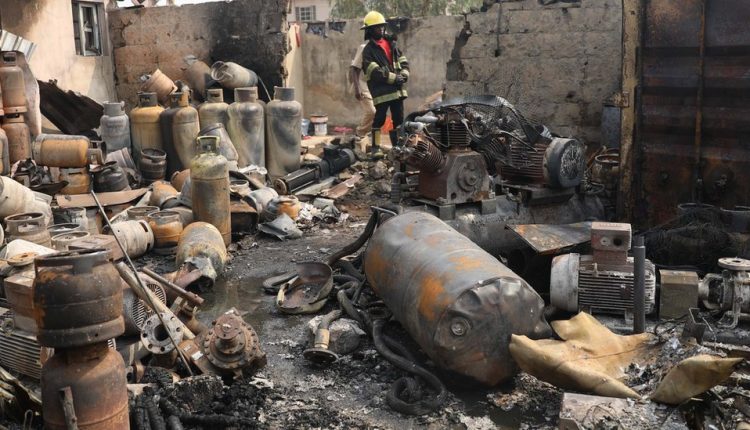FG Launches Investigation Panel Into Kaduna Weapons Factory Explosion
The explosion that shook the Defence Industries Corporation of Nigeria (DICON) in Kaduna on Saturday, killing at least one person and raising new questions about safety at the country’s top weapons production site, has prompted the Federal Government to open an investigation.
Recall that the explosion took place inside the DICON facility at the Ordnance Factory Disposal Pit.
The event occurred during the “final phase of controlled destruction” of dangerous materials and expired explosives that had long since outlived their useful lives, according to an official statement signed by Maria Sambo, the DICON spokesman.
These included hazardous materials that were essential to the manufacturing of weapons, including as propellants, priming caps, and ammonium nitrates.
While Channels Television cited unverified allegations from community sources indicating that up to four individuals may have died and numerous others were injured, DICON confirmed one fatality.
FG’s Reaction and Safety Issues
Kabir Adamu, the former Senate Head of Security and Managing Director of Beacon Security and Intelligence Ltd., called the situation concerning but praised the government’s prompt response.
We heard an explosion as soon as the President left Kaduna following his visit. Whether this was sabotage was the first thing that crossed my thoughts. However, Adamu stated on Channels Television’s The Morning Brief that there is currently no proof of sabotage and that the incident was a safety accident.
“A committee has been established to look into what happened,” he continued. However, it is obvious that stricter safety regulations may have avoided the explosion.
Since then, federal authorities have assured the public that the crisis has been controlled, and Mohammed Badaru, the Minister of Defense, has visited the location to evaluate the situation.
Adamu clarified that the explosion in Kaduna highlights the dangers of Nigeria’s drive for further independence in the manufacture of munitions.
“Increasing local weapons production by 40% is one of this administration’s priorities. Because it lessens reliance on foreign weapons and even creates export prospects, it’s a respectable initiative. However, the drawback is that in order to avoid mishaps like this, we need to bolster our safety regulations,” he stated.
He warned that even minor mistakes in handling explosives might have disastrous results, drawing comparisons to the catastrophic 2002 Ikeja cantonment bomb that left thousands homeless and hundreds dead.
Adamu criticized DICON’s present procedure for gathering, storing, and getting rid of outdated explosives, claiming that “gaps” in the system need to be fixed immediately.
“The guidelines for managing these items are still inadequate, based on my conversations with security staff. To prevent a recurrence of this tragedy, he emphasized the need for stronger procedures, more training, and closer oversight.
Government officials say the investigating group will examine both local and distant causes of the explosion and suggest more robust safety protocols.
Authorities are cautioning Nigerians against making snap judgments until the committee publishes its report.
“Let’s not preempt the committee,” said Adamu. Before making any final decisions, we ought to wait for their report.
In addition to bringing up unpleasant memories of previous military-related explosions, the tragedy has caused residents of Kaduna to question if the neighborhoods surrounding these facilities are actually safe.

